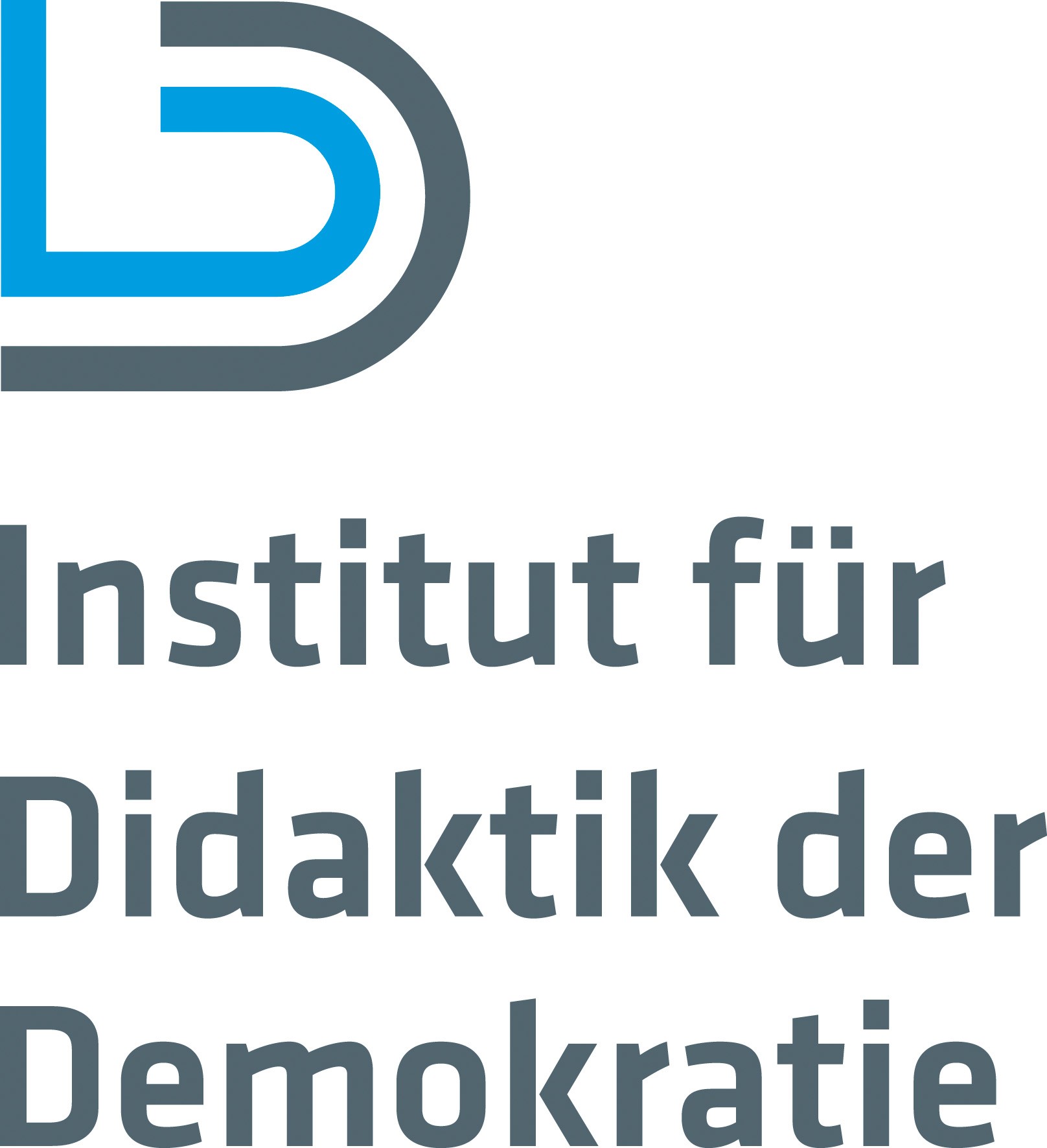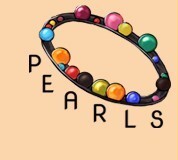
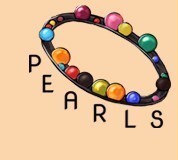
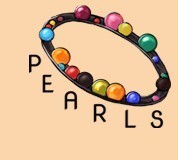
Preventing Early School Leaving Through Inclusive Strategies (PEARLS) is a three year lasting European strategic partnership in the field of school (2014-2017), co-funded by the Erasmus+ programme of the European Commission. Nine educational institutions from five countries collaborate in order to tackle the challenge of early school leaving in Europe.
The main outcome is the conduction of an international teacher training course. It took place in Budapest, in April 2017, read more. The accompanying materials, the PEARLS toolkit, entails 3 modules, e.g. handling diversity in class and inclusion of Roma students.
April 2018: Teacher Training Course in Berlin. Please find more info here.
Project
Objectives
Overall objective: To contribute to the reduction of early school leaving (ESL)
- Specific objective I: To implement support measures at schools for pupils at risk – by building a network with different actors. Parents, representatives of minorities and enterprises etc. will be involved into the sphere of school in order to promote the intellectual and emotional development of pupils at risk of early school leaving. Schools will be transferred into learning environments.
- Specific objective II: Plan and conduct a training course for teachers in order to a) spread the idea of supporting pupils at risk through such a network. And b): Teachers will deepen their key competences with regard to handling the diversity among pupils in their classes.
Background
The target value of the EU education policy is to lower the rate of early school leavers until 2020 under 10%. Objectives of the strategic framework for European cooperation in education and training (ET 2020, 2009/C119/02) among others are:
a) making lifelong learning and mobility a reality
b) improving the quality and efficiency of education and training
Regarding the above mentioned aim a) the PEARLS further training is part of the European qualification framework, participants will receive the EUROPASS Mobility. It is an internationally accepted document to record knowledge and skills acquired in another European country.
After the end of the funding period the PEARLS teacher further training will be provided regularly. Teachers can participate in a learning mobility for individuals called “Key Action 1” (KA1), which is an action of the Erasmus+ programme. Thus mobility for teachers as one crucial element of lifelong learning will be enhanced by the PEARLS project.
In terms of aim b) teachers learn to develop individual and pupil’s-centered learning offers – taking into account their respective expertise and experience. By this means students from disadvantaged backgrounds, with special needs as well as newly arrived migrants and members of national minorities (e.g. Roma) will be reached. Significantly more students than before will get a graduation.
Results
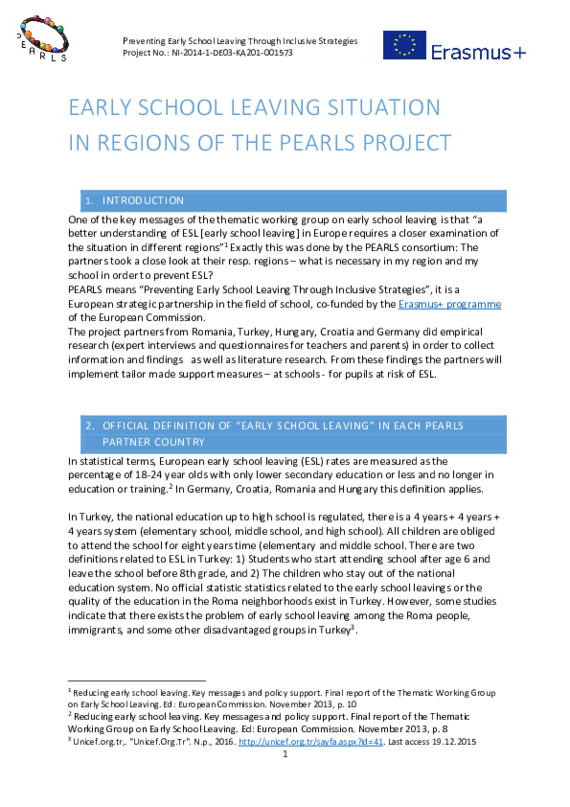
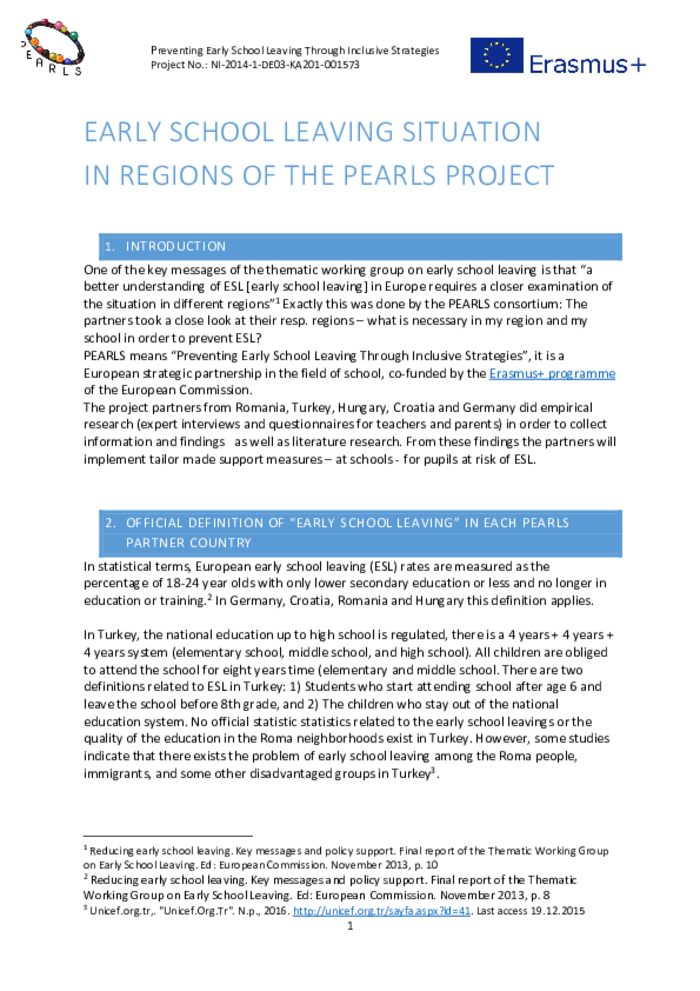
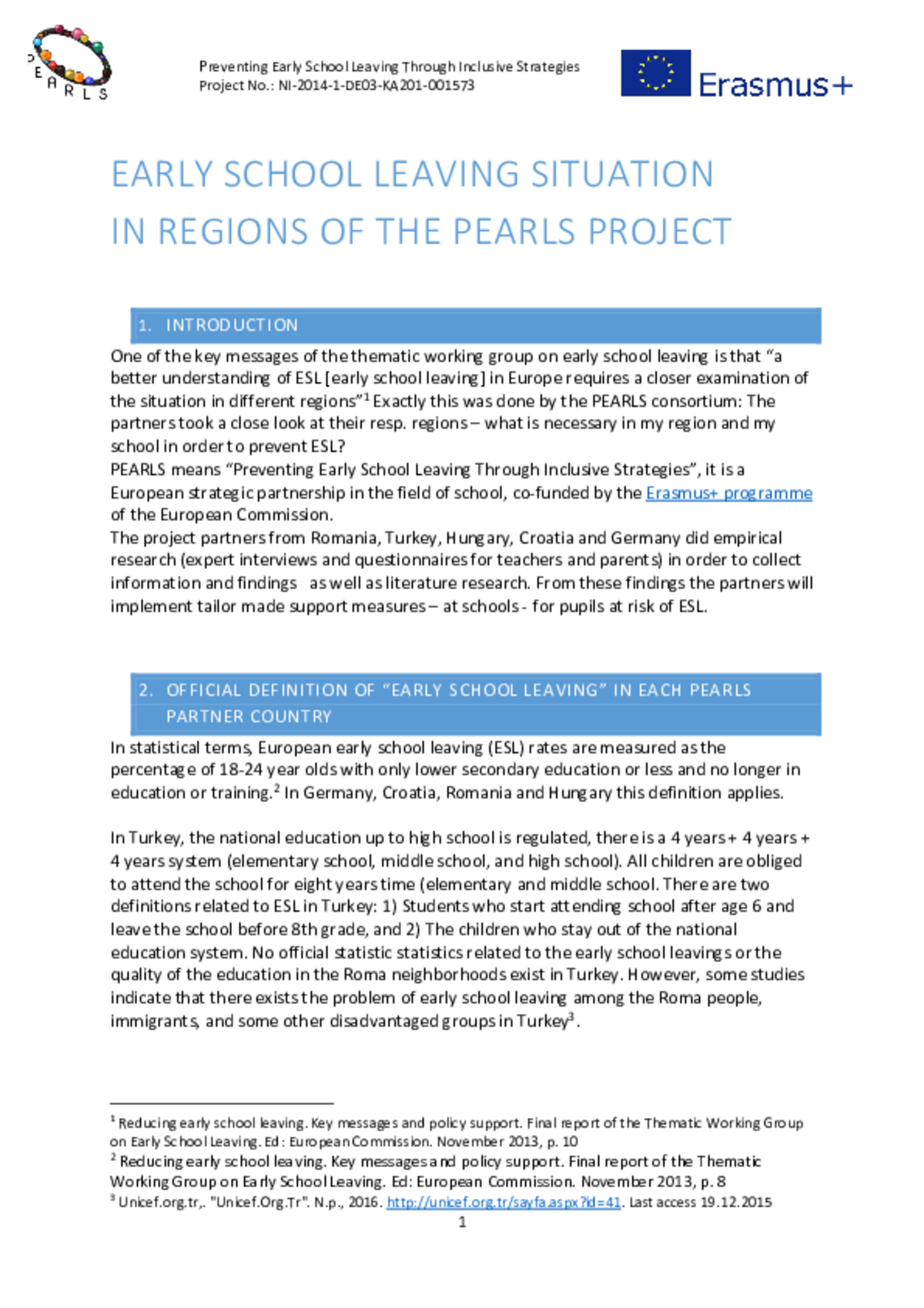
PEARLS Country Report on Early School Leaving
The PEARLS partners investigated in their respective regions the backgrounds and figures on early school leaving. They conducted empirical research as well as literature research in order to implement tailor made support measures for pupils at risk of early school leaving.
Here the overall report can be found.
Description of setting up a MENTOR PROGRAM at your school
Description of the competence mapping method: "TREE OF LIFE"
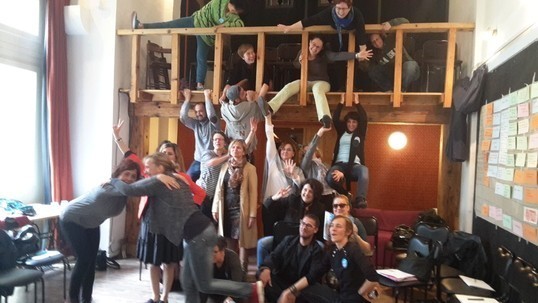


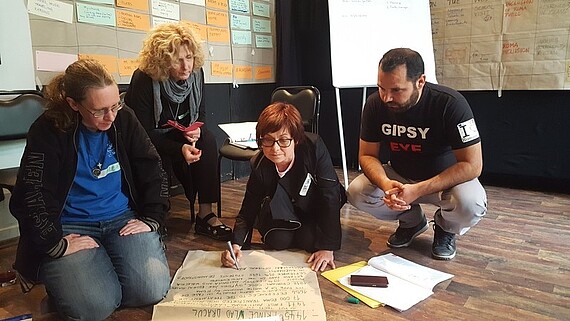


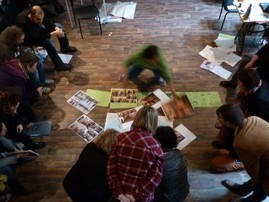


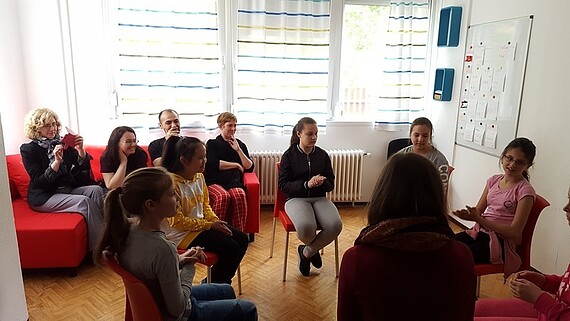


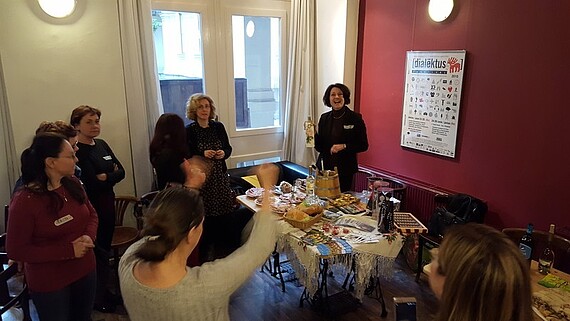
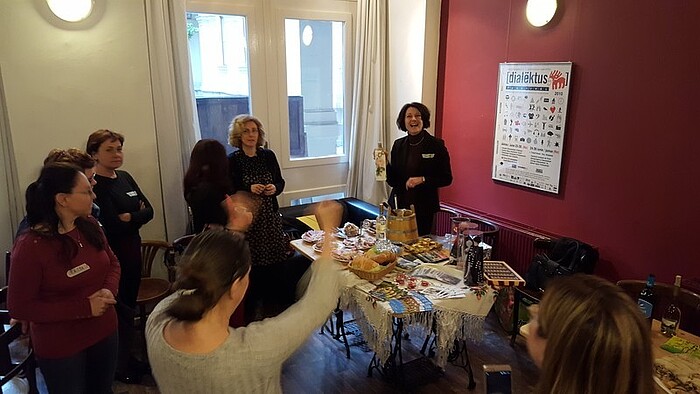
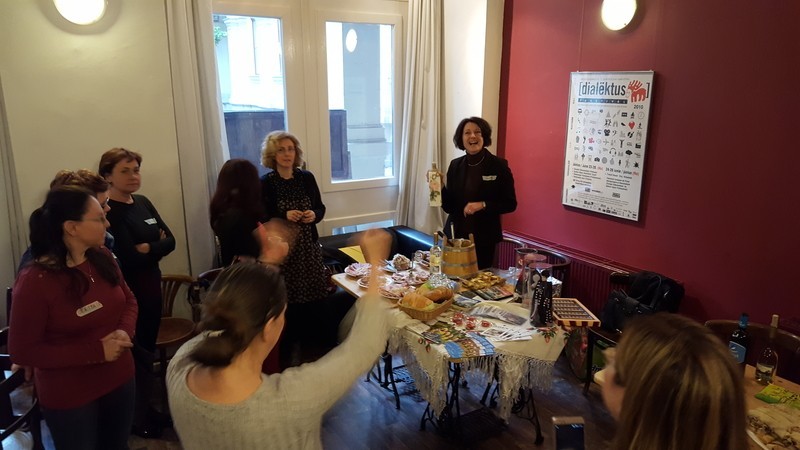
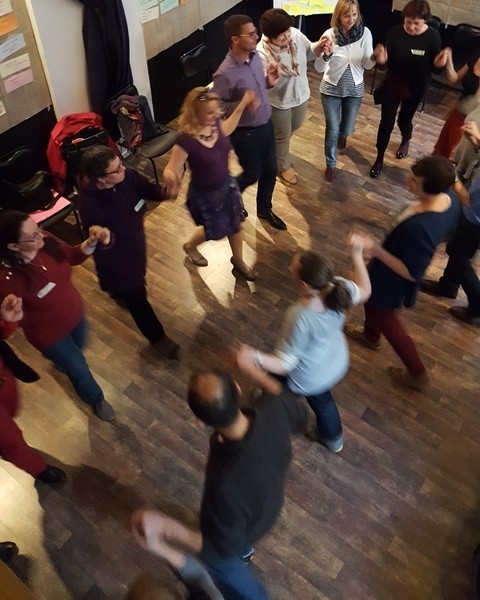


PEARLS Teacher Training Course in Budapest
The further training for teachers took place from 24th to 30th April 2017 in Budapest. Schools sent teachers to this training event if they had successfully applied for funding under Key Action 1 of the Erasmus+ programme. Read more about the event here.
Inspiring Exchange during International Teacher Training in Budapest
“Not all Roma speak the Romani language.”
“Roma history is not being taught in a school although 70% of the pupils are Roma.”
These are only two of many “aha-effects” which occurred during the intense work in several workshops. Besides PEARLS trainers from Romania, Hungary, Turkey and Germany, Benjamin Ignac from Croatia was present. He works at the European Roma Rights Centre (ERRC) and as a child he attended the primary school in Orehovica in Croatia. Three teachers of this school took part in the training. They are very experienced with the inclusion of Roma pupils. For example they offer courses for all parents (Roma and non-Roma) – dealing with the acquisition of reading and writing skills, as well as questions with regard to upbringing their children. An EU funded project was the starting point for these workshops. Although the project is terminated, some teachers continue with courses for parents, now mainly done voluntary, means unpaid. Ionut Stan, the founder of the Romanian NGO “Gipsy Eye” asked the participants: “Have you ever bought books and pencils for your pupils?” The group: “YES!” Ionut Stan replied provokingly: “Don’t do that.”
Of course he sees the dilemma: pupils do need school materials. And he appreciates that the teachers often step in. At the same time he emphasized that clear words are needed (letters, visits, petitions, press articles etc.) with regard to more financial support from municipalities and educational authorities.
For Ionut Stan it was new that most Roma families in Medjimurje (Croatia, the region where the Orehovica school is located) speak the Boyash language (not Romani). He explained that not all Roma in Europe speak Romani or another related language, because the Roma traditions were partly extinguished by the majority society.
Simona Borko, social pedagogue at the Dr. Ivan Novak primary school in Macinec (Croatia) vividly explained the factors which lead to successful cooperation with Roma parents. She, together with some of her colleagues, had the impression that there is no other way than to became active themselves in order to improve the situation. Because there was a lack of support from authorities. Once this decision was made they contacted the NGO „Open Academy – Step by Step“. Simona and some of her colleagues enrolled in their trainings on anti-discrimination and power structures within a society. Aftwards they invited their colleagues, their headmaster and together they went to the Roma settlement „Parag“. All travelled in the big white school bus. „This changed a lot“, Simona said. The parents of our pupils felt valued, they could see that we as teachers have a crucial interest in their children. Since then she or one of her colleagues goes out to the Roma settlement each week to clarify issues with parents. Now more Roma parents attend meetings at school, when matters related to their children or common programs need to be discussed.
„What are the factors which lead to a better inclusion of Roma pupils?“ Benjamin Ignac said that most of the Roma students internalized shame of being Roma; a lot of them also incorporated fear due to discrimination over the centuries and due to present incidents. Therefore it would be good when teachers find ways to encourage Roma pupils to be proud of their Roma identity and to socialize more with non-Roma students. Furthermore he stressed that the application of Human Rights and Children's Rights in schools is very important. Since many children do not know their rights and institutions which would support them. Later in the course, Susan Navissi, teacher at the Richard primary school in Berlin Neukölln, showed hands-on materials and methods on Human Rights. The participants said that they appreciated this very much, because they can directly use it in their classes.
All in all the feedback from the participants to the whole course was outstandingly positive. The extremely considerate atmosphere within the group was mentioned. Some participants rather spoke in their native language than in English. A colleague translated and the others paid very much attention, no impatience was in the air. Thus some teachers said that they now understand their pupils much better who have only little knowledge of the national language. As highlights the 15 participants mentioned the exchange of experiences and best practices as well as the visit of Losonci primary school in the 8th district of Budapest. Piroska Czifrik works there as a teacher for Hungarian. During the module 'Schools as Learning Environments' she presented the cooperative method: Complex Instruction Programme, which the course participants considered as very useful.
The evenings were filled with an intercultural party, a spontanious movie session at the seminar venue DokuArt (which is a cinema) and with various activities in Budapest, like a guided tour through the 8th district.
The contents of the workshop, its schedule etc. can be found here.
News & Events
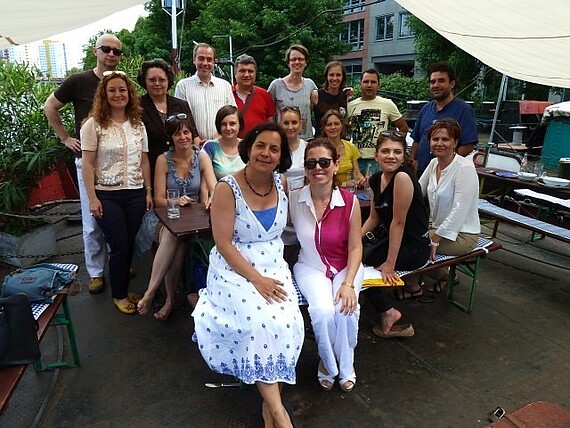
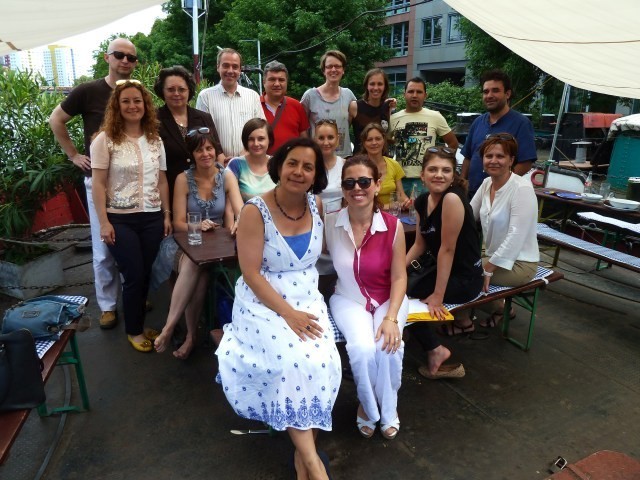

Partner Meetings
During the projects' life time five partner meetings will take place. This face to face contact is the basis for a reliable cooperation between the partners.
The first meeting took place in Berlin, Germany, 5. and 6. June 2015
The second PEARLS partner meeting was held in Pascani, Romania, in November 2015 (19+20th). In October 2016 (17.-19th) we will have the third meeting in Edirne, Turkey.
-
1st PEARLS Partner Meeting
![]()
![]()
![]()
![]()
![]()
![]()
![]()
![]()
![]()
The PEARLS kick off meeting took place in Berlin, Germany on June 05./06. June 2015. It was organized by the Humanistic Association and led by Meike Jens, Leibniz University Hannover.
Representatives from all nine project partner institutions took part, they prepared excellent power point presentations about their organisations. The PEARLS work plan and the partner’s individual responsibilities as well as financial and administrative issues were discussed. Occasionally warm up activities took place so that the partners had good opportunities to get to know each other in an informal setting.
**********************************************************************************************************
Also the dissemination and evaluation strategies were discussed and fine-tuned.
Due to the Champions Leagues finals the project group could not visit the memorial for the approx. 500,000 Sinti and Roma who were killed during German National Socialism. Instead Ionut Stan gave a spontaneous short lecture on Roma in Europa the next day. The information were very valuable, especially because Roma pupils and their parents are one of the main target groups of the PEARLS project. The meeting ended with a relaxed choir festival in the district of Berlin Schöneberg.
-
2nd PEARLS Partner Meeting
![]()
![]()
![]()
Romanian "bit TV" filming parts of the PEARLS meeting ![]()
![]()
![]()
Project partners in the kindergarden of the Cozmesti campus ![]()
![]()
![]()
First work session, Thursday, 19. Nov. 2015 ![]()
![]()
![]()
PEARLS project consortium at Gipsy Eye Association in Pascani, Romania ![]()
![]()
![]()
Crowning finale of the meeting - event with round dance and local delicacies, organised by Gipsy Eye Association and the County Chamber of Agriculture Iasi In Cozmesti in north east Romania (county of Iasi) the second PEARLS partner meeting was held. 18 partners discussed during two days, 19. and 20. November 2015, the outlines of three teacher training modules for the training course in Budapest in 2017. They also presented the outlines of support measures, further developed them in transnational work groups and agreed upon steps and dates for implementation in the respective partner countries.
On Friday Mrs. Gabriela Conea, the school inspector for European projects from the County School Inspectorate of Iasi held a short lecture - recently Mrs. Conea and Mrs. Angela Casariu, teacher of the Cozmesti school, informed 300 headmasters in the region about the PEARLS project.
-
3rd PEARLS Partner Meeting
![]()
![]()
![]()
Hüseyin Özcan ![]()
![]()
![]()
The Turkish PEARLS partners ![]()
![]()
![]()
Movie from Claudia Casariu ![]()
![]()
![]()
Percussion group of the Mustafa Necati School ![]()
![]()
![]()
PEARLS team after visiting the Selimiye mosque From October 16th – 19th 2016 the third PEARLS meeting took place in Edirne/Turkey. Edirne is located in the Marmara region, the river Merics seperates Turkey from Greece.
Mr. Hüseyin Özcan from the Directorate National Education of the Province Edirne welcomed the PEARLS consortium. He mentioned the achievements in the educational sector of Edirne. And he expressed his worries about the growing islamophobia in Europe and resentments against the Turkish government. Also Aydin Karaca welcomed us, he is the headmaster of the Mustafa Necati school. A photographer took pictures from the opening ceremony, one day later articles in several newspapers were published – all due to press releases of the Turkish PEARLS partners.
During the meeting partners presented findings from trial courses of the modules for the teacher training course, they discussed in small groups last changes, so that the final versions are going to be finished 30th of November 2016. Afterwards the translation, layout and printing can take place.
The international teacher training course (TTC) is going to take place in Budapest in April 2017. At the moment 13 participants from Croatia and Germany are confirmed, the Turkish and the Romanian partners are trying to get funding for teachers as well. After a day full of presentations and group work, Claudia Casariu presented her movie which shows the situation of Rroma in Pascani/Romania. The partners were impressed. They want this movie to be a part of the TTC.
The Turkish partners offered a very nice free time program, we visited the beautifully restored synagogue in Edirne, the famous and impressive Selimiye mosque and a basar. But the highlight of the program was the visit of our partner school Mustafa Necati. Most of the pupils are Rroma. A group welcomed us with a brilliant drum performance.
-
4th PEARLS Partner Meeting
![]()
![]()
![]()
![]()
![]()
![]()
![]()
![]()
![]()
For the last time the partners met in Zagreb, Croatia, from 29.-30th of June 2017. They took a look back: What has happened within the last three years? What have we achieved? Besides an intensive evaluation work, the partners made plans for cooperation in the future and on possibilities to offer the international teacher training course regularly.
Links
Here you will find links to sites that provide you with important information about Early School Leaving.
HIGHLY RECOMMENDED: Movie about the teacher Vesna Perhoč. Informative and touching. She teaches in aprimary school in Croatia, her students are mainly Roma. Entails approaches of parents' involvement.
Tackling Early School Leaving. A collection of innovative and inspiring resources. 2017.
OECD report 'Society at a Glance 2016": Growing risk of social exclusion among early school leavers.
Final Report of the Thematic Working Group on Early School Leaving
Dissemination
Activities and results in order to promote the approaches and results of PEARLS
ARTICLES on Humanistic Press Service:
"Lernen und Lehren in Rumänien"
"Kroatien übernimmt Elemente des Humanistischen Lebenskundeunterrichts in das Curriculum"
TELEVISION
Broadcast on Romanian "bit TV", 20.11.2015 (min 32.35- 38.05)
Broadcast on Romanian "digi24", August 2016
CROSS LINKS
Center for Interethnic Dialogue and Tolerance, Bulgaria
Reducing Early School Leaving in Europe, RESL.eu
Deutscher Bildungsserver, Germany
Freie Universität, Berlin, Germany
Institut für Qualitätsentwicklung an Schulen Schleswig-Holstein, Germany
Romanian bit TV
Orehovica Primary School, Croatia
Agencija za odgoj i obrazovanje, Croatia
Gipsy Eye - See beyond Prejudice, Romania
Artemisszio Foundation, Hungary
Losonci Primary School, Hungary
E-TWINNING
PEARLS webinar in June 2017
PEARLS webinar in September 2017
TRIAL COURSES
Croatia, Module: Schools as Learning Environments, June 2016
Turkey, Module: Handling Heterogeneity in Class, September 2016
CONFERENCES
Germany: Jahrestagung für Strategische Partnerschaften im Schulbereich. Bonn. November 2015. Power Point "Prävention von schuldistanziertem Verhalten"
Austria: Erasmus+ Forum, Inklusion und Bildung. Wien. March 2016. Stefan Schaaf, head of the National Agency PAD in Germany, refers to PEARLS as a successful Erasmus+ project in front of 350 participants. Input about PEARLS, by Meike Jens. PEARLS description in conference catalogue.
Croatia: NECE Conference: Networking European Citizenship Education. Crossing Borders. Migration and Citizenship Education in Europe, Zagreb/Croatia, 10-12 November 2016
NEWSPAPERS
Józsefvárosi Újság, 15.9.2915, Hungary
Nők Lapja Egészség Magazin, Hungary, September 2015
Yeni İnan, 15.12.2015, Turkey
Abcúg, 6.6.2016, Hungary
School newspaper of Croatia, 6.9.2016
Glas Slavonje, 9.1.2017, Croatia
Józsefvárosi Újság, 27.04.2017, Hungary
Haber Trak, 5.6.2017, Turkey
Haber Trak, 9.6.2017, Turkey
NEWSLETTER
Networking European Citizenship, 1/2017
Institut für Didaktik der Demokratie, 1/2017
OTHER
Humanistische Lebenskunde. Informationsbrief für Eltern 1/2017
About Us
Leibniz University Hanover



Coordinator of the project is the Institute for Civic Education of the Leibniz University Hanover in Germany. The university was funded in 1831, nowadays it has 21,000 students and 4,700 staff members. Didactics of Democracy describes the scientific examination of a “learning democracy”. Students who will become teachers for civic education are enrolled here. Active citizenship it the focal point of teaching and researching. The Institute has a strong record of developing educational tools, curricula and teaching material.
Humanistic Association Germany, section Lebenskunde
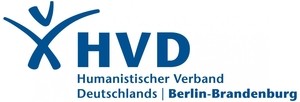


Sandra Moßner and Bernhard Stolz
The purpose of our association is the promotion of humanism and humanity on a secularized basis. In Berlin-Brandenburg the HVD section has 1200 employees.
Scope of our work:
- Counselling with regard to patient’s provision
- Responsible for 25 kindergartens in Berlin
- Teaching the subject “Lebenskunde” (similar to ethics) in primary schools in Berlin
The teacher training department of the Humanistic Association of Germany (HVD), section Berlin, is engaged in various European networks and projects on the topic of migration. With the subject “Lebenskunde” we reach 50,000 pupils in Berlin and Brandenburg, it deals with ethical and moral learning from a non-religious perspective. The human rights convention from the United Nations is one of our guidelines. Anti-discrimination is an important topic in our teaching as well in our national and international teacher trainings. The latter we provide regularly as Erasmus KA1 courses in Afacan/Turkey.
Artemisszió Foundation, Hungary
Erzsébet Csáky and Zsuzsanna Komjáthy
Artemisszió is a private NGO established in 1998, with 17 full time employees. It aims to encourage continuous dialogue between culturally and socially diverse groups. We have three main sectors of work: integration of marginalized groups, adult training and school programs.
Our activities have an international scope: we have a wide network of social partners in Budapest, we are active in the impoverished regions of Hungary, collaborate with other NGOs from diverse European and non-European countries (e.g. Brazil, Colombia, Sierra Leone). The Foundation is member of the Hungarian Hub of the European Migration Network, the Anna Lindh Foundation and the Global Education Working Groups of Hand (the national NGDO platform).
Losconi primary school, Hungary
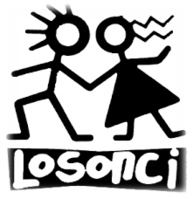


Piroska Czifrik and Tímea Kiss
The school is located in the 8th district of Budapest. It has 550 pupils who predominantly derive from a disadvantaged socio-economic background, the share of Roma children is 60%.
Losonci has 66 teachers, who permanently look for new possibilities in order to support their pupils. For example they establish ties to civic institutions, like foundations, sport associations, museums, the Hungarian chess association etc..
The work atmosphere among the teachers and between the teachers and the headmaster, Csilla Stenzinger, is very good - and a good condition for dealing with the problems of the students. Moreover team teaching is applied in classes 1 to 4, this approach will be incorporated in the PEARLS teacher further training.
losialtisk.hu
Tekirdağ Romans Aid and Solidarity Association, Turkey
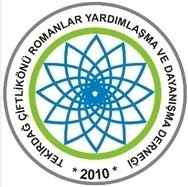


Necmi Gündüz and Semih Marangoz
Our association was founded in Tekirdağ in 2010, which is situated at the north coast of the Marmara Sea.The city (150,000 inhabitants) has two main neighborhoods where Roma people live. These neighbourhoods have been transformed into places where people suffering from poverty. The low attendance rate to schools and early school leaving are crucial problems which contribute to the poverty trap. Our association aims at developing a network between Roma people, the public institutions, and the non-Roma people. Here one of our objectives is the improvement of the educational situation among the young Roma people.
Mustafa Necati Primary School, Turkey
Özlem Oktay
Our school has 150 students, aged 6 to 10, all are from Roma communities.
We also have 15 pupils with disabilities, they are supported by members of a social work institute, this support is not comparable to western European standards. The Mustafa Necati school is located only two kilometres from the Greek border, it belongs to the Marmara region of Turkey.
Only 5% of the parents have a regular job, the others have occasional jobs or depend on small welfare from the state. These conditions have a negative impact on the performance of the pupils. In order to improve the situation we provide, on a small scale, extracurricular activities, like singing, dancing and theatre. As a partner in the PEARLS project we will extend these offers.
Moreover we work together with the Edirne science lycee which has 382 pupils (age between 14-18 years) and 34 teachers. During the project period of PEARLS we want to colllaborate with other institutions as well, thus a network for supporting our pupuils will be established.
Association „Gipsy Eye“, Romania



Ionut Stan
Gipsy Eye is a grass roots organization, the members are from several societal groups like university, high school but also less educated young Roma. Our motto is “see beyond prejudice”. Gipsy Eye was founded as an informal group in 2007 by the initiative of six Romani students, in August 2008 it became an official NGO. It is based in Iasi, in the north-east of Romania, which belongs to the less developed regions of the country. However Iasi plays an important role in the Romanian cultural and economic life (i.e.: Iasi is the third biggest university centre after Bucharest and Cluj). Five percent of the Romanian Roma live here.
We aim to combat prejudices against Roma by the following:
- Supporting Roma children for having equal access to education
- Preventing drop outs of Roma pupils by mediation and training of teachers
- Encouraging Roma girls to become role models and to be active in projects
- Enhancing Roma identity in Romani youth by giving knowledge of Romani culture and history
Scoala Gimnaziala Cozmesti, Romania



Angela Casariu
The Cozmesti School is located in the east of Romania in the Moldavian region, it has 316 pupils, aged between three and fifteen years. They come from different social environments, in most cases they are considered as ‘disadvantaged’. The school is divided into nursery school, primary school and gymnasium, it is well equipped (projectors, laptops, new furniture, modern teaching material). A kindergarten belongs to the school as well, it has a very good reputation throughout the country.
With the financial support of the PEARLS project, the school board aims to involve more disadvantaged children in projects and partnerships in order to prevent the early dropout, especially among the Roma community. Two teachers also derive from Roma communities, which is exceptional for Romanian schools. This is an advantage in order to reach Roma children and their parents.
Education and Teacher Training Agency, Croatia
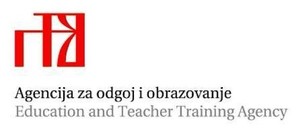


Nevenka Lončarić-Jelačić
The Education and Teacher Training Agency (ETTA) is a public institution responsible for professional and advisory support in the area of general education in Croatia. The professional staff of ETTA are 110 senior advisers working in the central office in Zagreb. Besides professional support for educational staff the scope of our work is:
The education of Croatian citizens abroad and the education of foreign nationals in Croatia,
participation in the development and implementation of the national curriculum,
monitoring the development and implementation of Croatian National Educational Standard as a part of the national curriculum etc.
Since 1999 we are responsible for the implementation of the national curricula for human rights education and for implementation of the curricula on active citizenship education. The National Plan of Action for Roma Inclusion (2005-2015) as well as other important national documents are implemented through this curriculum.
This project has been funded with support from the European Commission. This communication reflects the views only of the author, and the Commission cannot be held responsible for any use which may be made of the information contained therein.
